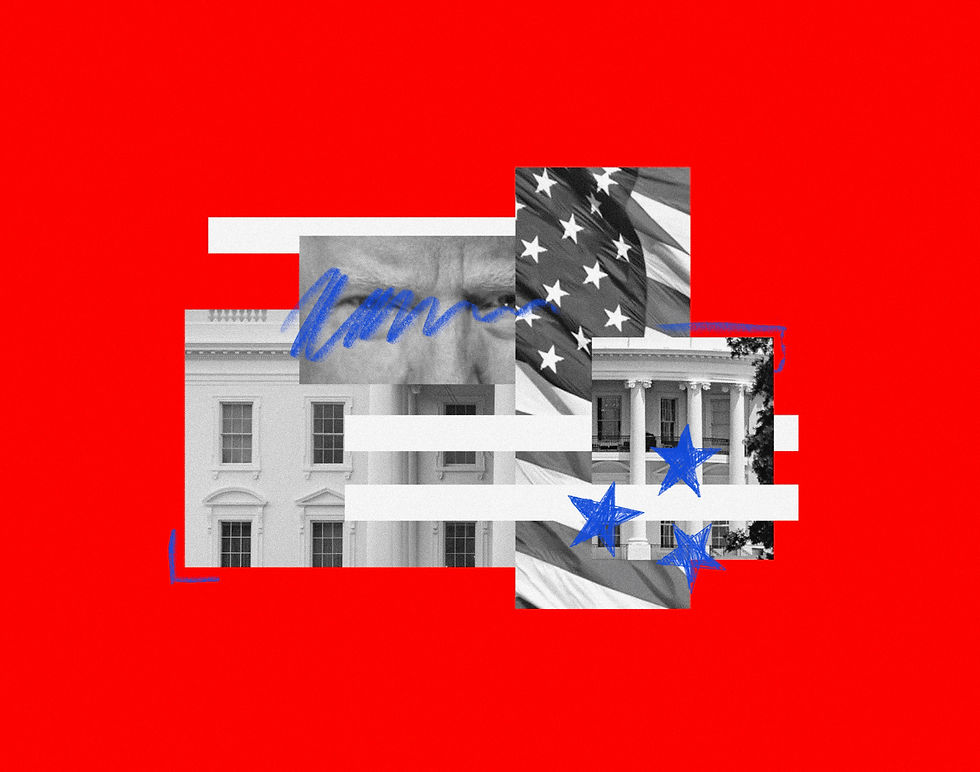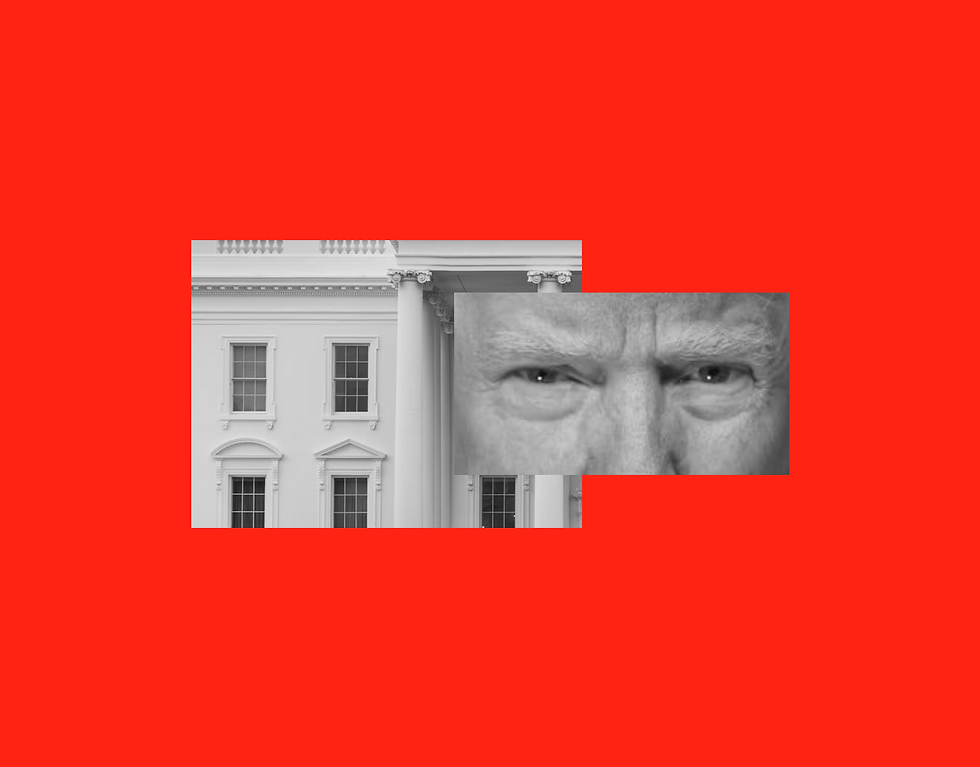Eyes On 2028: The Race For President Begins Again
- Isabel Rodriguez

- Aug 19, 2025
- 4 min read
Updated: Aug 21, 2025

Less than 1,500 days away, the race for the 2028 US Presidential election is already on its way. Between Trump briefly teasing a third run and Democratic infighting at the drop of a hat, the 2028 election cycle is already setting up a chaotic landscape for US politics and the future of western democracy. With nearly 60% of Americans dissatisfied with the functioning of democracy in the United States, the 2028 election cycle is poised to be another pivotal moment in American history.
Beginning with the Republican Party’s 2028 aspirations, several candidates emerge not only as options to become the nominee but also as voices to lead the party post-Trump. While many pollsters have current Vice President JD Vance in the lead to win the nomination, the bigger story lies in other contenders, such as Donald Trump Jr., Secretary of State Marco Rubio, Florida Governor DeSantis, and Secretary of Health and Human Services Robert F. Kennedy Jr..
The most prominent name in the line of succession is his own: Donald Trump Jr., a MAGA heir who’s increasingly seen as a driving force behind the MAGA agenda. Described as the “most prominent non-elected representative of the MAGA base hands down, the No. 1 surrogate and power player in the ecosystem outside of his father,” Trump Jr’s power is rooted in Washington and drives the MAGA brand across the world. Whether it's posting memes about deportations or visiting Greenland to promote President Trump’s agenda of buying the island, it has been made clear time and again that Trump Jr., despite not being an elected leader or cabinet member, is a significant representative of the administration and the MAGA agenda.

This power has led to intense public disagreements and debates about the future of the Trump and MAGA names in politics. So much so that, in 2024, Trump Jr. expressed immense concern over then Senator, now Secretary of State, Marco Rubio joining the Trump 2024 presidential ticket. Stating on record that Rubio as a VP would lead to the impeachment of his father almost immediately, he went on to say how Rubio, being an established leader in politics, poses a threat to the anti-establishment movement they seek to continue developing.
“There is something about having someone from outside the establishment to sort of further protect you from that establishment,” Trump Jr. said on his video podcast, Triggered.
Regarding 2028, this sentiment will most certainly intensify and become a point of contention. As the Trump administration’s second term wears on, the fact its “drain the swamp” initiative is at a pivotal crossroads has become inescapable, as names with past political experience outside of the administration, such as Rubio, DeSantis, and even long-shot Noem, have the potential to divide voters between the MAGA faithful and standard Republicans, a fear Trump Jr. knew early on. While his name on the ballot may carry weight, it will again raise the same question, as he inherently reflects his father's legacy more than any party vision he has influenced behind the scenes, with a political inheritance that feels much more like a curse.
Moving across the aisle, the Democrats' 2028 aspirations and political platform are just as messy, with infighting and messaging continuing to be muddled by public discontent, party voices speaking over one another, and a general lack of consensus on key issues across the board. While the Republican Party’s 2028 fight will be defined by who will lead the party’s future, the Democrats' 2028 battle will be about the core identity of the party itself and who it seeks to serve.
With key figures such as Former Vice President Kamala Harris and Former Secretary of Transportation Pete Buttigieg leading polling, this identity fight will be more about the outliers and where they are seeking to guide the party, including New York Representative Alexandria Ocasio-Cortez and California Governor Gavin Newsom. This identity crisis and the prospective nominees reflect a greater trend in US politics that current Democrats have seemed to lose sight of, believing it only affects the Republican party: the widening of the political spectrum in US politics.

These outlier figures, such as AOC, represent a significant share of the Democratic votership that seeks to propel progressive voices into these spaces, compared to the more moderate Democratic establishment. This growing divide between democratic votership underscores a party-wide issue of being out of touch with their base’s core identity and the issues that affect their daily lives, as opposed to the Republican party’s struggle with consolidating leadership and future direction. A Reuters/IPOS survey highlights this, with 49% of Democrats unhappy with current leaders, 10% being unsure, and 41% backing the party.
While we can talk for days about the various issues democrats need to message on to defeat MAGA rhetoric, such as immigration, economy, Middle East tensions, trans rights, and healthcare, their 2028 aspirations to win back power in key areas will centre around who is relaying the message and their proven track record in fighting for the people, and not their extensive campaign promises.
In the end, the race for president, while still a ways away, is shaping up to be a battle for both parties about future direction and reconnection. While the majority of the Republican Party will focus on who will continue to propel the anti-establishment movement that President Donald Trump started in American politics, the Democratic Party will focus on connecting with constituents and hearing the voices calling for an establishment shake-up.
Illustration: Will Allen/Europinion
.png)



Comments